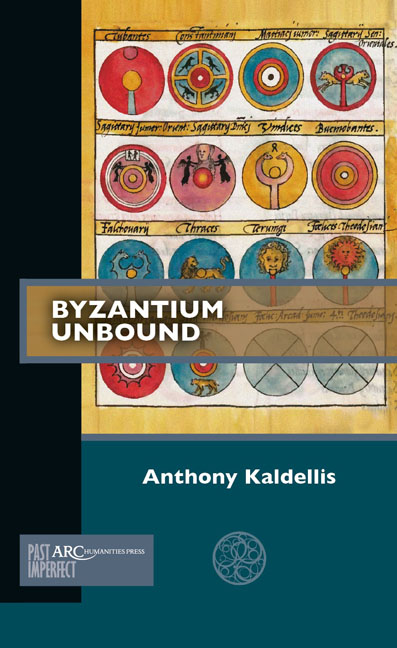Summary
Byzantium has been pushed around a lot. Most overtly, as told in Chapter 1 below, it has been the target of western vilification and polemic starting from medieval times, going strong through the Enlightenment, and reaching all the way down to the twentieth century. Recent efforts to rehabilitate it have tended more to push back against bias than develop grounds for positive appreciation and engagement. But prim protests against bad words (such as “decline”) will not spark interest among non-Byzantinists. More invidiously, as explained in Chapter 2, history has been carved up into periods in ways that often work to the disadvantage of Byzantium. For example, Byzantium has been artificially cut off from its Roman roots. Moreover, efforts by western medieval scholars to secure as western possessions the early Church Fathers (i.e., the Patristic period), the major Councils that defined the faith, and Justinian's codification of Roman law created another artificial scheme that left behind a rump Byz-antium, starting in the seventh century. This appropriation has been revived recently in the invention of “late antiquity” as an (alleged) period and field of study.
This book exposes the history and politics of these biases but it also aims to lay a foundation for the positive study of Byzantium by historians and classicists. In doing so it proposes a long view of Byzantium, which begins in the early Roman empire, encompasses all the creative forces of the centuries after the foundation of Constantinople, and extends to the modern period. This is a Byzantium unbound by the interests of other cultures and fields of study that would cut it down to size to suit themselves. The aim of this book is not to advocate that such a “long view” be enshrined in textbooks, courses, and our general periodization. It is, instead, a thought-experiment in seeing the ancient Greek, Roman, and Christian traditions as flowing together, without great ruptures, to form this one particular civilization, and only this one. It presents Byzantium as an unparalleled vantage-point from which we can look back to ancient history and forward to modernity, as well as west to the origins of Europe and east to the Islamic world, without great obstructions in one's field of vision. It is only a start: much more can, should, and hopefully will be said.
- Type
- Chapter
- Information
- Byzantium Unbound , pp. vii - xPublisher: Amsterdam University PressPrint publication year: 2019

